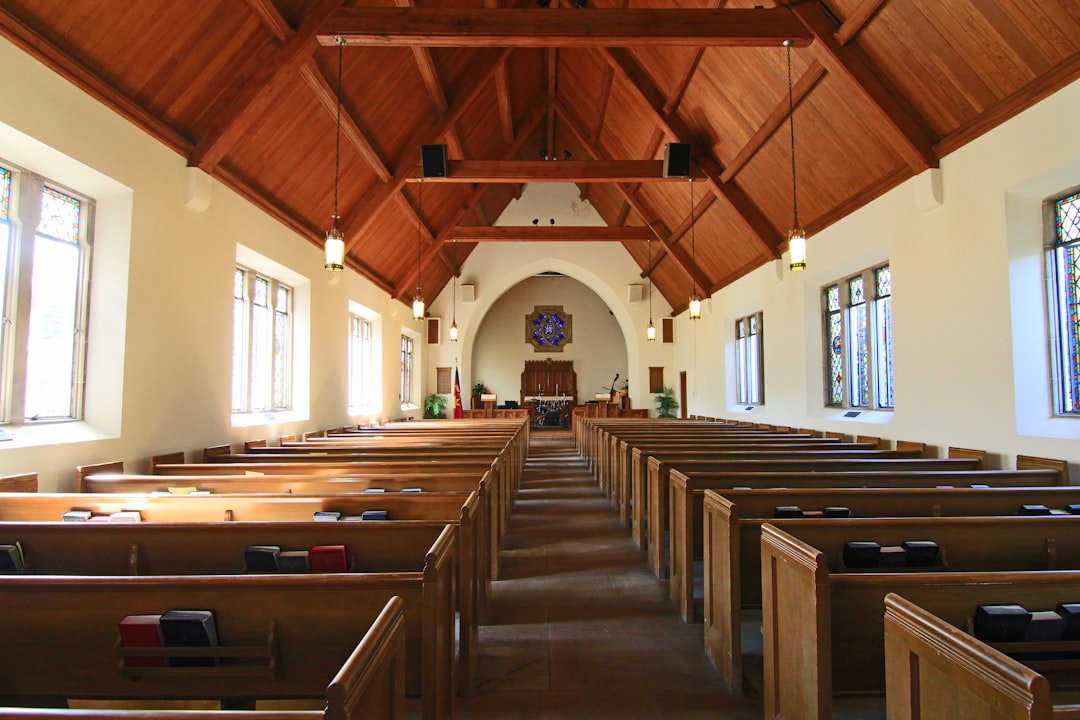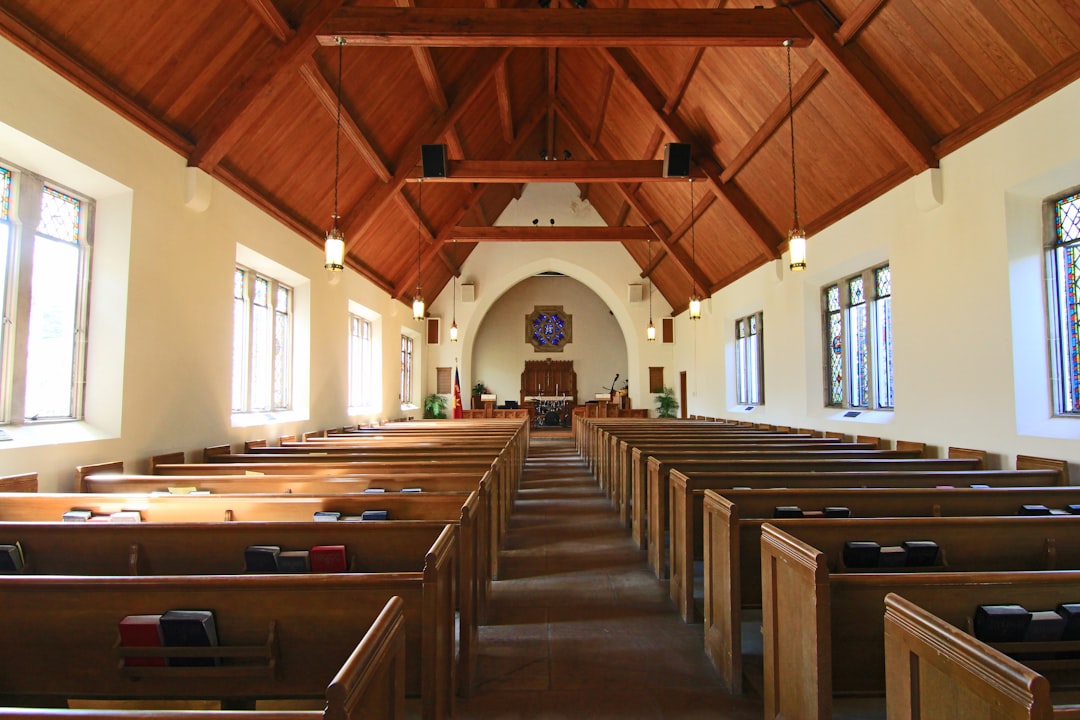Bible-based churches play a pivotal role in Christianity, yet many people may not be entirely familiar with what these churches are all about. In this article, we’ll delve into what characterizes a Bible church, the core beliefs and doctrines that they embrace, and the different types of worship services they offer to all believers. Join us to discover the fascinating world of Bible-based churches and their role in shaping the Christian faith.
What is a Bible church?

If you are someone who is looking to dive deeper into Christianity, you might have heard the term “Bible church” being used. So, what is a Bible church exactly? Simply put, it is a Christian denomination that is centered around the Bible as its major source of authority and doctrine. Here are some of the core beliefs and doctrines that are embraced by Bible-based churches:
- The belief in the gospel message of salvation through Christ, which is based on the Bible’s teachings.
- The belief that the Bible is the inerrant, infallible, and inspired Word of God.
- The belief in the Trinity – that is, that God exists in three persons: the Father, the Son (Jesus Christ), and the Holy Spirit.
- The belief that faith in Jesus as the Son of God is the key to eternal life.
- A commitment to Christ-centered worship and scriptural preaching.
Bible-based churches strive to create a community of believers who are dedicated to the study of scripture, discipleship, and evangelism. The role of scripture is central to everything that these churches do. They believe that the Bible contains all of the necessary guidance for leading a fulfilling and godly life.

Types of worship services offered by Bible-based churches can vary. In some churches, services might be more traditional, with hymns, scriptural readings, and a sermon. Other churches might have more contemporary worship, with praise bands or worship teams.
Pastoral leadership is another important aspect of Bible-based churches. These churches typically have a pastor, who is responsible for leading and shepherding the congregation. Pastors are typically chosen for their theological knowledge, leadership capabilities, and dedication to the Bible’s teachings.
Community involvement and fellowship are also a cornerstone of Bible-based churches. Many churches have small groups or Bible studies that meet regularly. These groups provide an opportunity for believers to grow in their faith and develop close relationships with other members of the congregation.
Missions, outreach, and charitable initiatives are also important to Bible-based churches. These churches believe that it is their responsibility to extend Christ’s love beyond the boundaries of their own congregation and into the larger community. They might have programs to serve the needy, sponsor foreign missions, or provide support to other Christian organizations.
In summary, a Bible-based church is dedicated to the worship of God and the study of scripture. They believe in the authority of the Bible and strive to live a Christ-centered life. Whether you are new to Christianity or a seasoned believer, a Bible-based church can be a great place to grow in your faith and make meaningful connections with other believers.
Core beliefs and doctrines embraced by Bible-based churches
Bible-based churches share a set of core beliefs and doctrines that shape their beliefs and practices. These beliefs and doctrines are rooted in the Bible and are considered essential to the Christian faith. Here are some of the core beliefs and doctrines embraced by Bible-based churches:
-
Christ-centered: Bible-based churches believe that Jesus Christ is the central figure of the Christian faith. They believe that Christ is the son of God and that he died on the cross for the salvation of humanity.
-
Scripture: Bible-based churches hold the Bible as the authoritative Word of God. They believe that the Bible is inspired by God and contains all necessary knowledge for salvation and Christian living.
-
Salvation: Bible-based churches teach that salvation is a gift from God and can only be received through faith in Jesus Christ. They believe that salvation is not earned but rather a free gift of grace.
-
Discipleship: Bible-based churches emphasize the importance of discipleship as a lifelong process of spiritual growth and transformation. They believe that discipleship involves following Christ in all areas of life.
-
Community: Bible-based churches stress the importance of belonging to a community of believers. They believe that the church is a family of believers who support and encourage one another in their Christian journey.
-
Evangelism: Bible-based churches are committed to spreading the Gospel message to all people. They believe in sharing the good news of Jesus Christ with others through personal testimony and outreach.
-
Biblical interpretation: Bible-based churches place a high value on studying and interpreting the Bible. They believe in using sound biblical principles to understand and apply the teachings of Scripture.
Bible-based churches adhere to a conservative biblical interpretation and hold to a set of doctrines that define their beliefs and practices. These core beliefs and doctrines shape the way Bible-based churches worship, serve, and interact with their community.
The role of scripture in Bible-based churches
Bible-based churches place a high value on the Bible as the ultimate authority for Christian living. They view the Bible as the inspired Word of God, containing all that is necessary for salvation and spiritual growth. Here are some ways in which Bible-based churches emphasize the role of scripture:
-
Preaching and teaching: Bible-based churches prioritize the preaching and teaching of the Bible. Sermons and Bible studies are often the centerpiece of worship services and small group gatherings. Pastors and teachers strive to explain the meaning of scripture and how it applies to everyday life.
-
Biblical interpretation: Bible-based churches believe in interpreting scripture in its context and with careful attention to the original languages and cultural background. They seek to understand the author’s intended meaning and apply it to modern life.
-
Personal study: Bible-based churches encourage their members to read and study the Bible on their own. They provide resources such as reading plans, devotional guides, and study groups to support personal Bible study.
-
Worship: Bible-based churches incorporate scripture into their worship services through the reading of passages, hymns and songs based on biblical themes, and prayers that reflect the language and imagery of the Bible.
-
Doctrine: Bible-based churches base their core beliefs and doctrines on the Bible. They believe that the Bible is the final authority on matters such as salvation, the nature of God, and the purpose of life.
In summary, the role of scripture in Bible-based churches is foundational and central to their beliefs and practices. They believe that the Bible is the primary way in which God has revealed himself to humanity, and they seek to live out its teachings in all aspects of life.
Types of worship services offered by Bible-based churches

Bible-based churches offer various types of worship services that are centered around the teachings and principles of the Holy Scripture. These services are designed to help believers grow in their faith, deepen their understanding of the Bible, and connect with God in a meaningful way.
Here are some of the most common types of worship services offered by Bible-based churches:
-
Traditional Services: These services usually follow a formal order of worship, with traditional hymns and liturgy. They may include elements like responsive readings, prayers, and a sermon based on a specific passage from the Bible.
-
Contemporary Services: These services are more modern and informal in style, with contemporary worship music and a more relaxed atmosphere. They may incorporate multimedia elements like videos or graphics, and the sermons may be more thematic in nature.
-
Blended Services: These services combine elements of traditional and contemporary worship styles to create a unique experience that appeals to a wider range of worshippers. Blended services may include a mix of traditional hymns and contemporary music, along with creative elements like drama or dance.
-
Prayer Services: These services focus on prayer and may take different forms, including group prayer, individual prayer stations, or a guided prayer time. They may also include meditative elements like silence or reflective music.
-
Communion Services: These services focus on the sacrament of communion, which is a symbolic representation of Jesus’ sacrifice on the cross and the forgiveness of sins. Communion services may be held weekly, monthly, or on special occasions like Easter or Christmas.
No matter what type of worship service a Bible-based church offers, the goal is always the same: to help believers connect with God and grow in their faith. Whether you prefer a traditional, contemporary, or blended style of worship, there is a Bible-based church out there for you.
Pastoral leadership and community involvement in Bible-based churches
As a member of a Bible-based church, you may wonder who is in charge of leading and guiding the congregation. In Bible-based churches, pastoral leadership is essential, and pastoral staff members are chosen for their leadership and teaching skills. Pastors are leaders and have the responsibility of providing guidance, support, and counseling to the members of the congregation.
In addition to the role of pastors, Bible-based churches often emphasize community involvement and fellowship. Members of the congregation are encouraged to be active in their communities and to serve others. Many Bible-based churches have a variety of ministries that focus on everything from helping the homeless to providing Bible study groups. These groups can help you get more involved in your local community and develop closer relationships with others in your congregation.
« Exploring the Beauty and Depth of Christian Humanism
Unveiling the Truth: Darius in the Bible and Ancient History »
Here are some ways pastoral leadership and community involvement are emphasized in Bible-based churches:
-
The pastor’s role: Pastors in Bible-based churches have a critical role in leading the congregation. They lead worship services, teach the gospel, provide counseling and guidance, pray for members of the congregation, and oversee the general direction of the church.
-
Small groups: Many Bible-based churches have small group opportunities for members to form more intimate connections with one another. These groups usually meet in homes and can develop close relationships and support systems. Small groups can be focused on various topics, such as Bible study or fellowship.
-
Community outreach: Bible-based churches encourage members to take an active role in their communities. Outreach programs like feeding the homeless, providing medical aid, and disaster recovery efforts are essential parts of many Bible-based churches.
-
Worship services: Bible-based churches offer a mix of traditional and contemporary worship services. Many churches offer multiple worship services, allowing members to choose the service style that best suits their preferences.
-
Pastoral care: Bible-based churches offer pastoral care services to members who need support or counsel. Whether it’s through counseling services or just providing a listening ear, pastors are there to help members through difficult times.
In summary, pastoral leadership and community involvement are essential aspects of Bible-based churches. With a focus on leadership, community outreach, and pastoral care, Bible-based churches create a supportive and loving environment for members to grow and thrive.
Missions, outreach, and charitable initiatives of Bible-based churches
As a Bible-based church, missions, outreach, and charitable initiatives are at the forefront of our beliefs and practices. We believe it is our responsibility to heed the call to serve others and show Christ’s love to those in need, regardless of their background. Here are some ways in which Bible-based churches engage in these initiatives:
-
Local outreach: We believe that one of the best ways to impact our community is by showing up and serving. Many Bible-based churches have food banks, after-school programs, and mentoring programs for children. We also offer counseling services for those facing personal challenges. These programs are open to the entire community and are free of charge.
-
International missions: Bible-based churches believe in spreading the gospel both locally and internationally. Many churches have partnerships with organizations and churches abroad. Some of our initiatives include building wells, schools, and churches, offering medical assistance, and distributing Bibles and other evangelism tools.
-
Disaster relief: In times of crisis, Bible-based churches are quick to mobilize their resources to help those affected. We believe that it is through serving others that we can show the love of Christ and offer hope to those in need. We partner with organizations that are already in the affected areas, or we send our own teams to provide relief services such as shelter, food, and medical care.
-
Charitable giving: As a church, we believe in supporting various local and international organizations through charitable giving. We have partnerships with organizations that share our values and beliefs and that are striving to make a difference in the world. We believe that by giving back financially, we can make a meaningful impact on the lives of those we serve.
In summary, Bible-based churches are deeply committed to serving their communities and being a light in the world. Through missions, outreach, and charitable initiatives, we strive to make an impact on the lives of those we serve, while also sharing the love of Christ and the message of the gospel.












